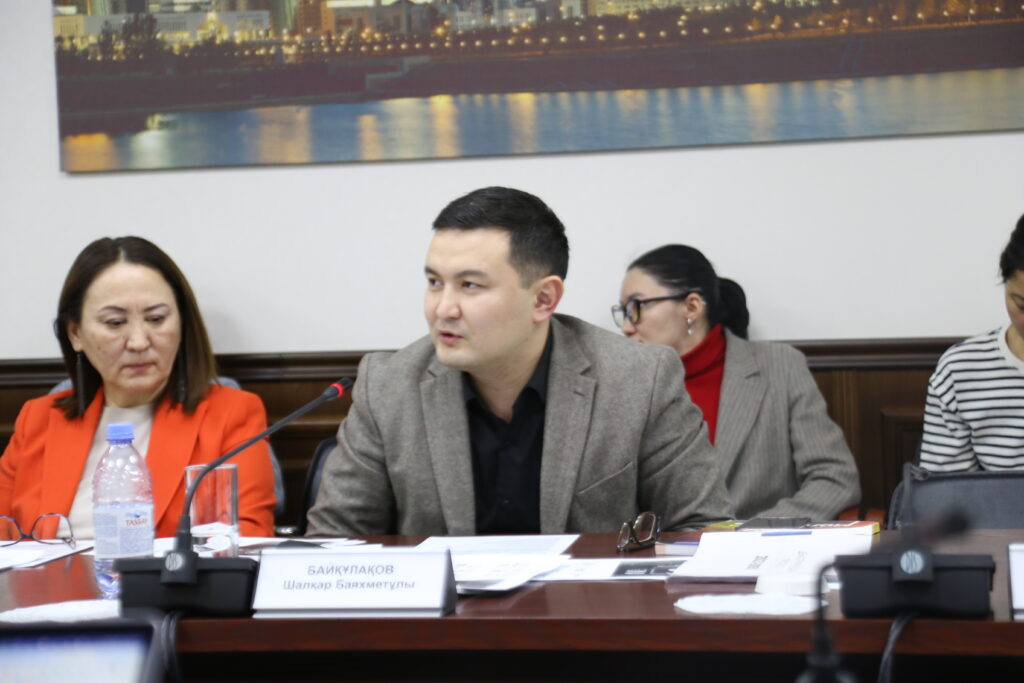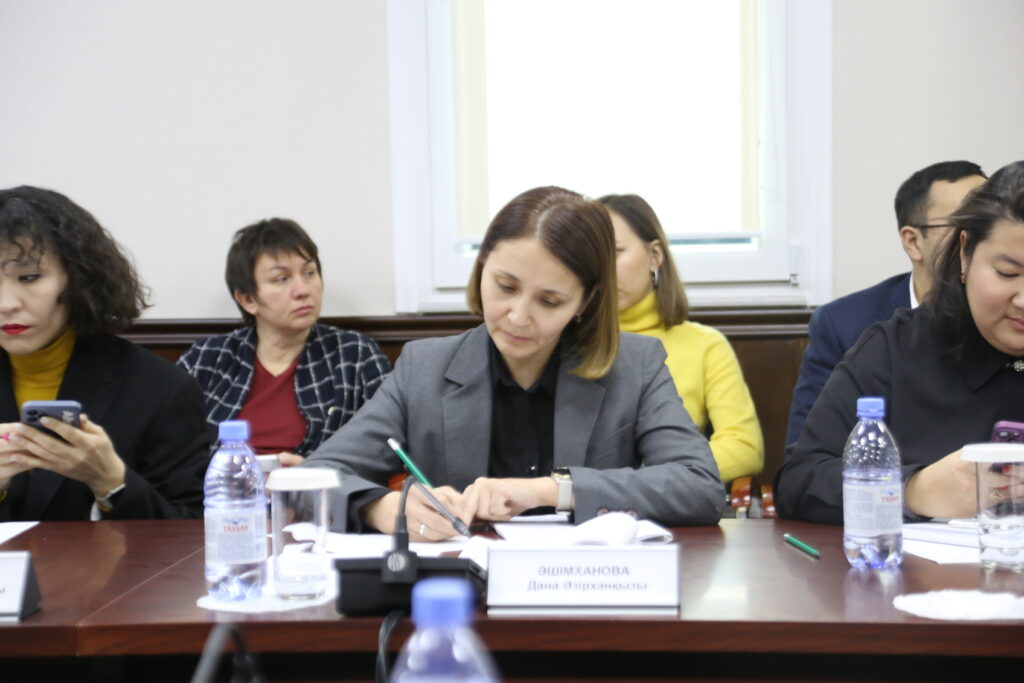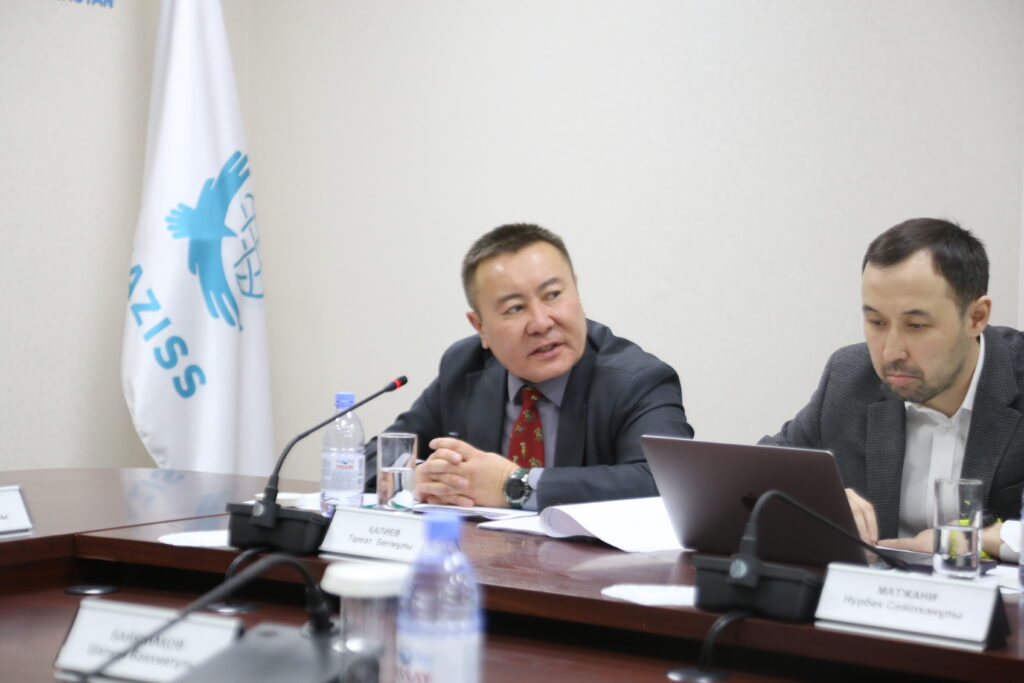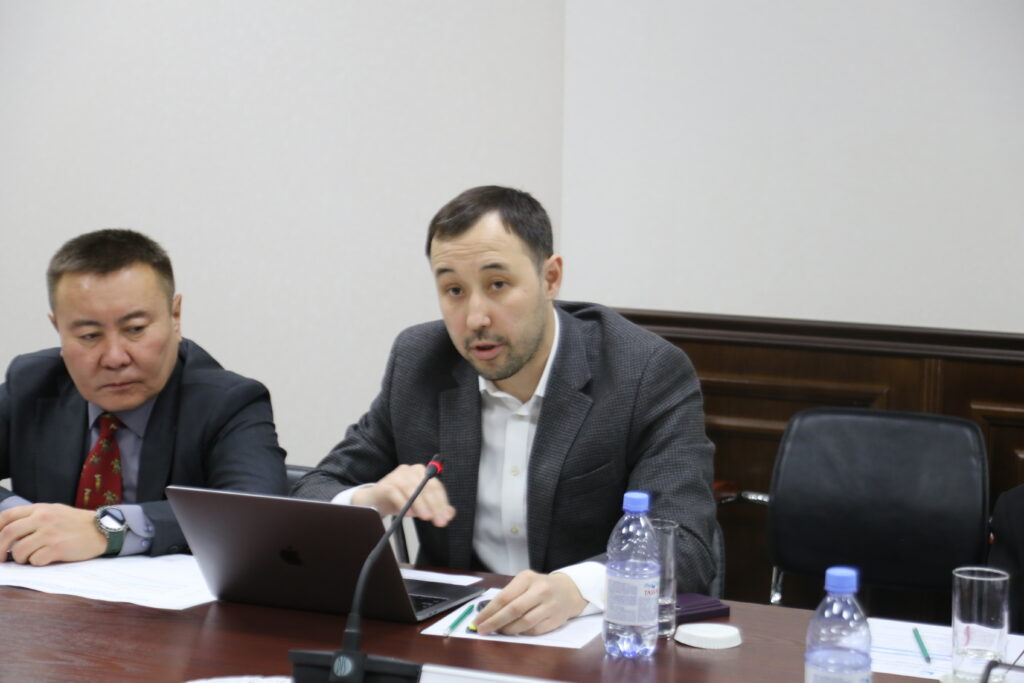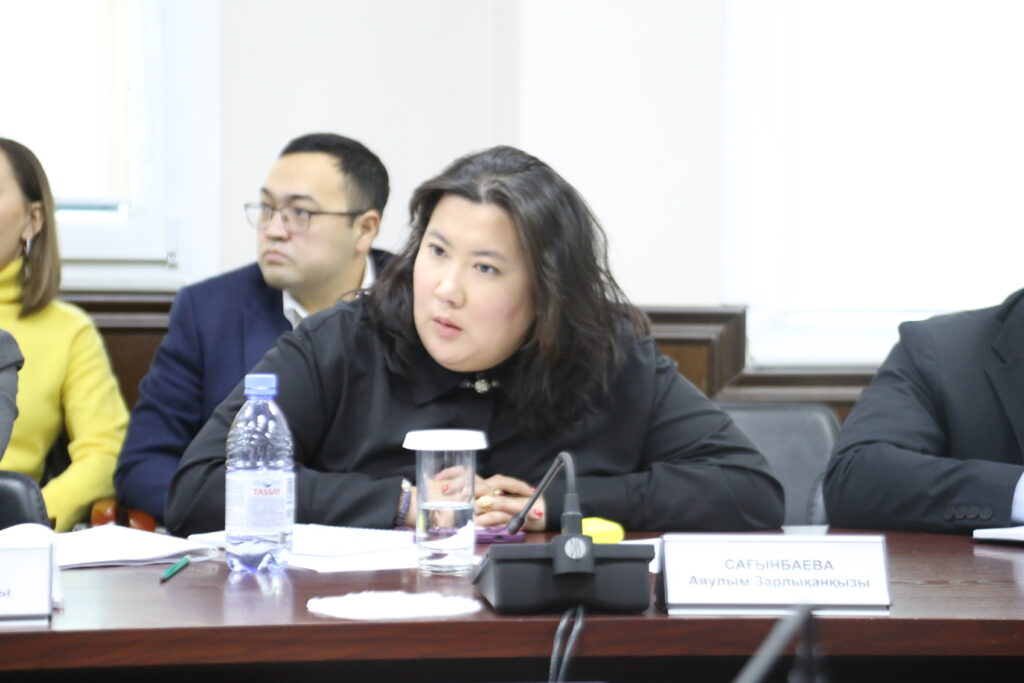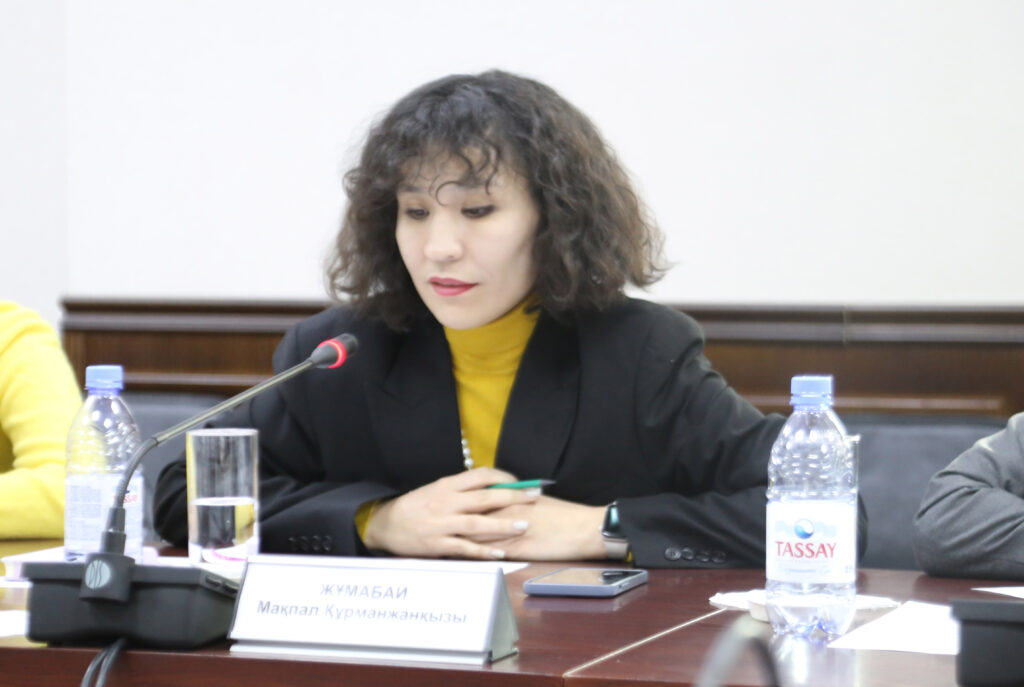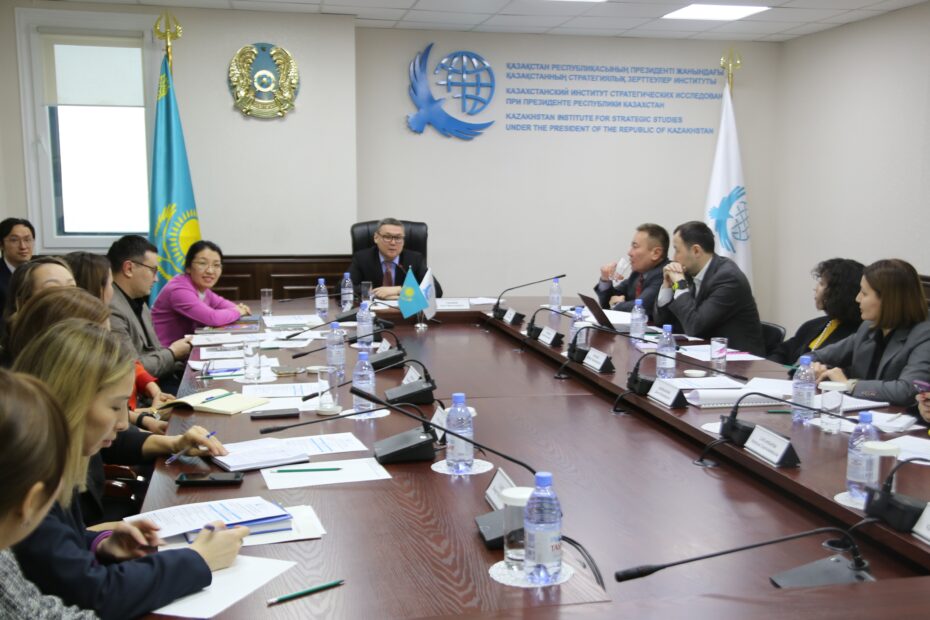On the expert platform “KazISS GPS: Gylym. Pikir. Sayasat,” the leading think tanks of the country presented the results of their research on the modern value orientations of Kazakhtanis. Representatives from the Institute of Applied Ethnopolitical Studies, Kazakhstan Institute of Public Development, Center for Labor Resource Development, Center for Current Studies “Alternative,” Institute of Philosophy, Political Science and Religious Studies, National Scientific and Practical Center “Til-Qazyna,” and the Center for “Ulttyq Ustaz Online Academy” participated in the meeting.
In his welcoming speech, KazISS Director Yerkin Tukumov noted, “Over the past decades, Kazakhstan has demonstrated a constant GDP growth, leading to changes in basic values. The economic progress of the state directly influences the standard of living, inevitably leading to changes in the cultural and basic values of Kazakh society. How well do people manage to adapt to this dynamic pace?”
Discussing the results of KazISS’s sociological survey, Yerkin Tukumov elaborated on the description of three population groups. “The first group consists of carriers of traditional, materialistic values. The second group comprises carriers of post-materialistic values. The third, the largest group, consists of carriers of mixed values,” noted the director of KazISS.
Elena Burova, Chief Researcher at the Institute of Philosophy, Political Science and Religious Studies of MSHE RK, focused on the sociological dimensions of the relationship between religious and secular values in modern Kazakhstani society. “Sociological research shows that the process of religionization of Kazakhstani society, which intensively developed since the 90s, has gone through a stage of religious renaissance, where there was a revival of religion as an institution and a return to religious values. Now religious traditions and practices are beginning to compete with secular institutions, traditions, and practices. Undoubtedly, 19% of surveyed Kazakhtanis build their lives connected with religious values,” highlighted Elena Burova.
Aigul Zabirova, Chief Research Fellow at KazISS, outlined a ranking of six main value trends based on KazISS’s research. “Among the surveyed respondents, the value of family dominates at 98%. The second value is friends at 91%. Respondents explain that this is a significant resource. In the third position is the value of free time, almost 89%, seen exclusively as a modern value. In the fourth place is work, at over 88%. Religion was identified as a value by more than 76% of respondents, and politics by more than 61%,” she noted.
Gulmira Kurganbayeva, Head of the Ulttyq Ustaz Online Academy, highlighted the role of the modern school in shaping values. “The first thing Generation Z and Alpha say is, ‘We will not march in formation: I am an individual with my own character.’ They deny group perception, demand recognition of individuality, and to hear everyone’s opinion. Their second value, freedom, is manifested in choosing a profile, time, and teacher (now very vividly expressed in the education system). Another significant value for many is leadership. Each school now chooses leadership as individualism, as team spirit. For Generation Z and Alpha, another mandatory value is creativity, to create a different reality, innovation, to create something new that makes sense,” she explained.
During their presentations, speakers also noted various factors influencing the formation of values and the change in the value system of Kazakhstani society, including urbanization, socio-economic situations, demographic and generational changes, digitization, and more. In particular, participants emphasized the significant role of the creative industry in elevating the status of the Kazakh language as a national value. In conclusion, participants of the expert meeting agreed to conduct joint research on the values of Kazakhstani society and develop a scientifically grounded approach to defining a new value paradigm for Kazakhstan.
